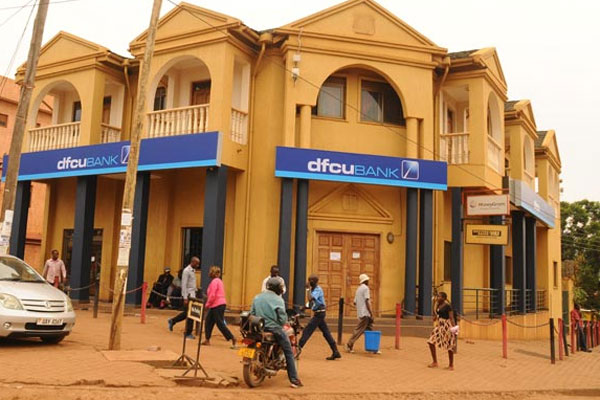In our continuous publication of the Auditor General John Muwanga’s report titled Special Audit Report on Defunct Banks which he shared with the Speaker of Parliament Rebecca Kadaga, we have found out that there were no proper guidelines instituted by the Central Bank for selecting buyers of Crane Bank which violates section 95(1)(b) of the Financial Intelligence Authority act.
Further, Mr. Muwanga couldn’t establish how DFCU was considered as the best evaluated bidder and how terms of the P&A agreement were determined.
In banking business P&A – Purchase And Assumption refers to a transaction in which a healthy bank or thrift purchases assets and assumes liabilities from an unhealthy bank or thrift.
This new development further exposes Bank of Uganda top administrators for maliciously handing over of Crane Bank to DFCU at contesting fee of shs 200 billion.
The defunct financial institution which was considered the largest in Uganda belonged to the affluent real-estate mogul Sudhir Ruparelia who rushed to commercial court seeking legal redress whereas Bank of Uganda claims Sudhir had siphoned shs 300 billion depositors’ savings from the bank.
BoU later alleged that he failed also failed to raise shs 700 billion as security.
The commercial litigation has since sucked in Parliament which thereafter directed Auditor General to kick off a comprehensive audit on Bank of Uganda in relation to closure of seven commercial banks since 1993.
Mr. Muwanga’s findings are shocking and depict malice, incompetence, neglect of duty, conspiracy, mafia-rism, all shrouding closure of these banks.
In Crane Bank’s case, the report indicates that BoU deliberately refused to revive Crane Bank into operational having failed to subject a Statutory Manager to a scrutiny as he executed key deliverables.
The Auditor General was stunned to learn that whereas BoU claimed Crane Bank was grossly insolvent, it was contrary to his investigation.
Hostile Takeover
In today’s article we bring you details how DFCU bank go through the official bidding process before acquiring the bank.
A hostile Takeover according to research is the acquisition of one company (called the target company) by another (called the acquirer) that is accomplished by going directly to the company’s shareholders or fighting to replace management to get the acquisition approved. A hostile takeover can be accomplished through either a tender offer or a proxy fight.
This is a similar case how DFCU landed into Crane Bank Deal.
According to section 95(1) (b) of the Financial Intelligence Authority act of 2004,it stipulates that the Central Bank shall within 12 months from taking over as a receiver arrange for the Purchase of assets and assumptions of all or some of liabilities by the financial institution.
“I observed that there were no guidelines/regulations or policies in place to guide the identification of the purchasers of defunct banks. There were also no guidelines to determine the procedures to be adopted by the Central Bank In the sale/transfer of assets and liabilities of the defunct banks to the identified purchaser,” the report indicates.
Usually a review of documentation is done in the process of selecting the buyer commences by Identifying potential purchasers in the industry and sharing Preliminary Information on the bank to be dosed.
Once the potential buyers expressed credible Interest to purchase the bank, they were require to sign a confidentiality agreement in order to obtain further information on the bank to be sold.
“According to the minutes for the special Board meeting held on 27th January 2017 BOU received expression of interest from 13 institutions and signed non-disclosure agreements with them.
Subsequently, BOU forwarded the report of the Inventory of the assets and liabilities of CU to the interested Institutions and requesting them to submit their bids. Out of the 13 Institutions, only 2 submitted bids (M/s Aethel Partners LIP and DFCU) to BOU. The bids were evaluated and DFCU was awarded.
The Auditor General wonders how DFCU was selected as the best bidder, “however I was not provided with the negotiation minutes leading to the P&A) agreement. In the absence of guidelines and negotiation minutes, I could not determine how BOU selected the best evaluated bidder and how the terms in the P&A were determined.”
